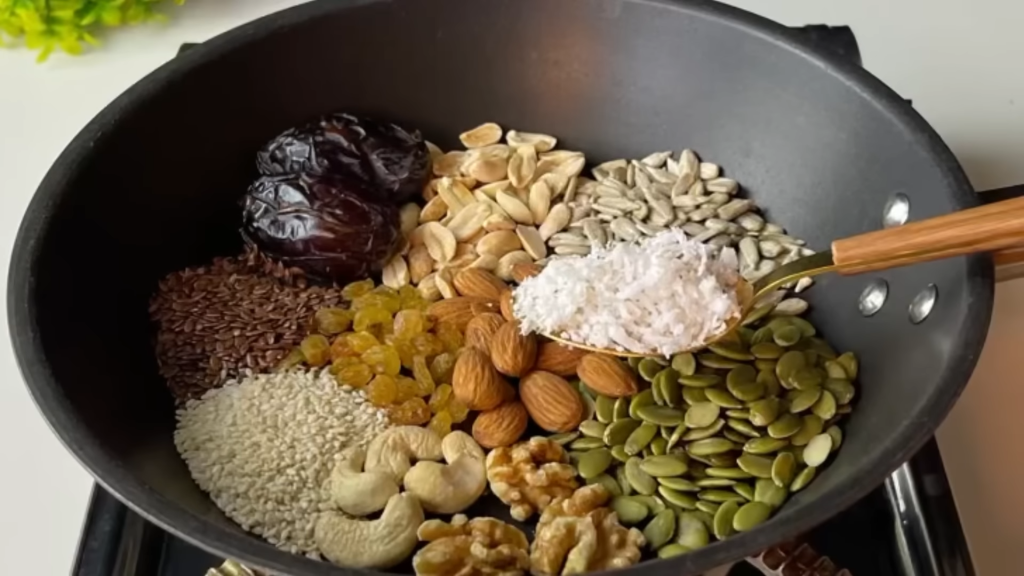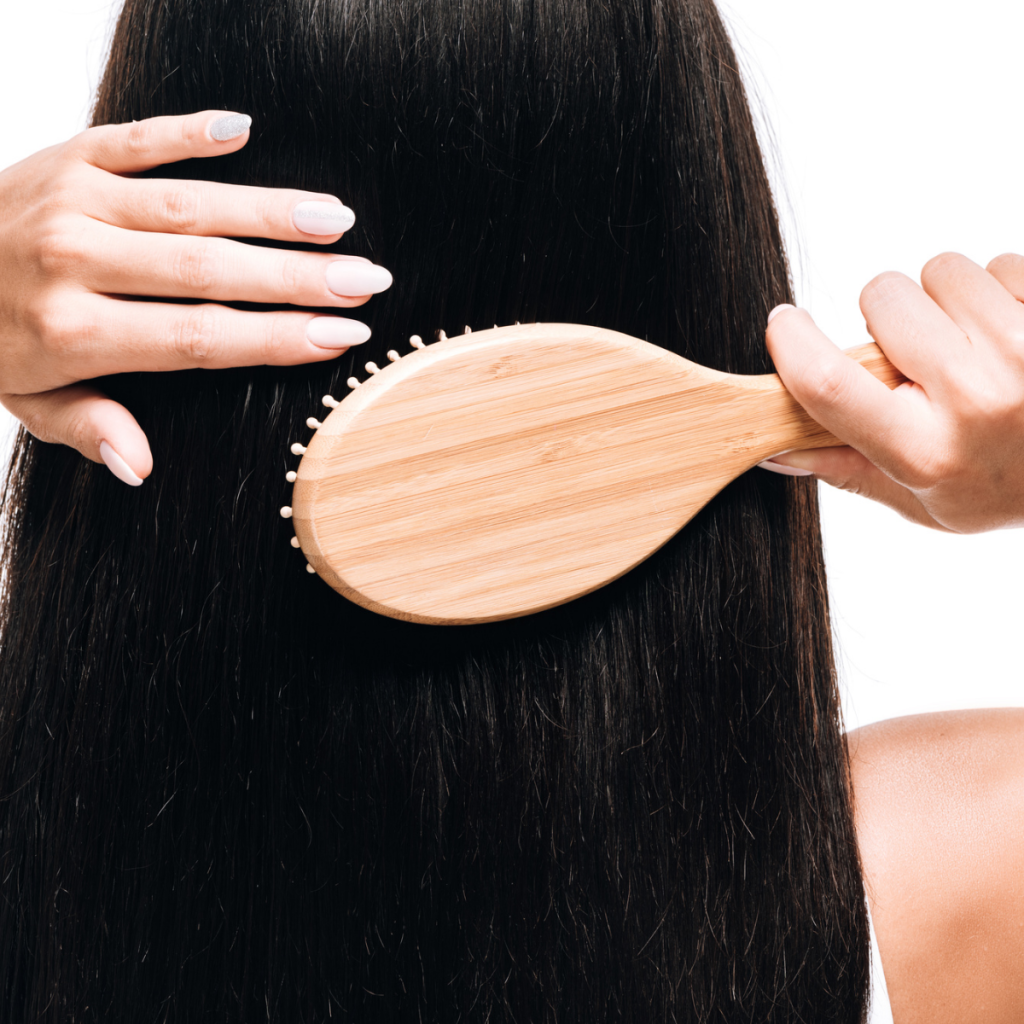Discover the key differences between relying on dietary habits and food sources versus taking hair supplements.
Comparing Dietary Habits and Food Sources to Taking Hair Supplements
Maintaining healthy and luscious hair is a goal for many of us. We spend hours trying to find the perfect products and treatments to achieve the desired look. But have you ever stopped to consider that your diet may play a crucial role in the health of your hair? In this article, we will explore the connection between dietary habits and food sources to taking hair supplements. So grab a snack, sit back, and let’s dive into the world of hair health!

Understanding the Role of Nutrition in Hair Health
When it comes to growing and maintaining our locks, what we put on our plates may be just as important as what we put on our heads. You see, our hair follicles require a variety of essential nutrients to thrive and grow. These nutrients, like vitamins, minerals, and proteins, act as building blocks for healthy hair.
So, what exactly does the science behind hair growth tell us? Well, buckle up because it’s about to get scientific! Hair growth occurs in three phases: anagen, catagen, and telogen. During the anagen phase, the hair follicle is actively producing new cells and growing. The catagen phase is a transitional period where hair stops growing, and the telogen phase is the resting phase before hair falls out.
But let’s dive a little deeper into the fascinating world of hair growth. Did you know that the rate of hair growth varies between individuals? On average, hair grows about half an inch per month, but this can be influenced by factors such as genetics, age, and overall health. Additionally, the duration of each hair growth phase can vary as well. The anagen phase typically lasts between two to six years, while the catagen phase lasts for about two weeks, and the telogen phase lasts for around two to three months.
Now, let’s talk about those essential nutrients that are vital for maintaining the anagen phase and supporting healthy hair growth. Biotin, also known as vitamin B7, is often referred to as the “hair growth vitamin.” It plays a crucial role in strengthening the hair shaft, preventing breakage, and promoting hair growth. Biotin can be found in foods like eggs, nuts, seeds, and leafy greens.
Another important nutrient for hair health is vitamin D. This sunshine vitamin not only helps our bodies absorb calcium but also plays a role in hair follicle cycling. Vitamin D receptors are present in hair follicles, and studies have shown that a deficiency in this vitamin can lead to hair loss. So, make sure to get some sun exposure or consider adding vitamin D-rich foods like fatty fish, fortified dairy products, and mushrooms to your diet.
Lastly, let’s not forget about the role of iron in maintaining healthy hair. Iron is an essential mineral that aids in the transportation of oxygen and nutrients to the hair follicles. Without sufficient iron levels, the hair follicles may not receive the necessary nourishment, leading to hair thinning and loss. Good sources of iron include lean meats, seafood, beans, and dark leafy greens.
So, the next time you think about hair care, remember that it’s not just about the products you use externally but also about the nutrients you provide internally. By incorporating biotin-rich foods, getting enough vitamin D, and ensuring adequate iron intake, you can support the health and growth of your beautiful locks from the inside out.
Essential Nutrients for Healthy Hair
Now that we understand the science behind hair growth, let’s dive into the essential nutrients that can keep our tresses looking fabulous. Firstly, biotin, also known as vitamin B7, is a water-soluble vitamin that plays a crucial role in the production of keratin, a protein that makes up the structure of our hair. Biotin can be found in various foods like eggs, almonds, and sweet potatoes. So why not whip up a delicious sweet potato and almond frittata to give your hair a boost?
Next up, vitamin D. Known as the sunshine vitamin, vitamin D is not only essential for bone health but also for maintaining healthy hair follicles. Our bodies naturally produce vitamin D when exposed to sunlight, but it can also be obtained through dietary sources. Fatty fish like salmon and mackerel are excellent sources of vitamin D. Plus, who doesn’t love a good salmon dinner?
And last but not least, iron. Iron deficiency can lead to hair loss and thinning, making it crucial to ensure an adequate intake of this mineral. Boost your iron levels by indulging in dark leafy greens like spinach and kale, which are not only rich in iron but also packed with other hair-friendly nutrients like vitamins A and C. Alternatively, treat yourself to a juicy steak, as red meat is another excellent source of iron.
Remember, a well-balanced diet filled with a variety of nutrient-rich foods is the key to unlocking luscious locks. While biotin, vitamin D, and iron are vital for healthy hair, there are other nutrients like zinc, omega-3 fatty acids, and vitamin E that also play crucial roles. So, why not have fun experimenting with different recipes that incorporate these hair-loving nutrients? Try adding zinc-rich foods like oysters and pumpkin seeds to your diet, or enjoy a serving of omega-3 fatty acid-rich walnuts as a snack. Don’t forget to include vitamin E sources like avocados and sunflower seeds in your meals as well.
In addition to a nutrient-rich diet, it’s essential to maintain proper hair care practices. Avoid excessive heat styling, use a wide-toothed comb to detangle wet hair, and protect your hair from the sun and environmental damage by wearing a hat or using a UV-protective spray. Regular trims and gentle scalp massages can also promote healthy hair growth.
So, whether you’re enjoying a delicious meal packed with hair-loving nutrients or taking care of your locks with proper hair care routines, remember that nourishing your body and hair from the inside out is the key to maintaining beautiful and healthy tresses.
Dietary Habits and Their Impact on Hair Health
Now that we’ve covered the importance of essential nutrients let’s discuss how our dietary habits can affect the health of our hair. It goes without saying that maintaining a balanced diet is essential for overall well-being. But did you know that the foods we consume can directly impact the condition of our locks?
The key to healthy hair lies in consuming a variety of nutrient-dense foods. But what exactly does that mean? Well, it means incorporating foods rich in vitamins, minerals, proteins, and healthy fats into our daily meals. These include fruits, vegetables, whole grains, lean proteins, and nuts.
But why stop there? Let’s take a closer look at some specific foods that can promote hair growth and strength. First up, avocados. Not only are they delicious, but they are also loaded with healthy fats that moisturize the scalp and promote hair growth. Time to whip up some guacamole, anyone?
Next, we have berries. Think strawberries, blueberries, and raspberries. These little powerhouses are packed with antioxidants that protect hair follicles from oxidative stress. Plus, they make a great addition to your morning yogurt or smoothie!
Lastly, let’s not forget about nuts and seeds. Almonds, walnuts, and flaxseeds are all rich in omega-3 fatty acids, vitamin E, and zinc, which all work together to nourish the hair follicles and promote hair growth. So, consider adding a handful of nuts to your daily snack routine for a healthy hair boost!
The Role of Hair Supplements in Hair Care
Now that we’ve explored the wonders of a nutrient-rich diet let’s talk about hair supplements. When it comes to achieving our hair goals, some people turn to supplements as an additional boost. But what exactly are hair supplements?
Hair supplements are typically formulated with a combination of vitamins, minerals, and other ingredients that claim to promote hair growth, strength, and overall hair health. They are available in various forms, including capsules, gummies, and powders, making it easier to fit into your daily routine.
However, like with any supplement, there are pros and cons to consider. On the plus side, hair supplements can provide an extra dose of essential nutrients that may be lacking in your diet. They can also be convenient for those with a busy lifestyle or specific dietary restrictions.
On the other hand, it’s important to note that supplements should never replace a healthy and balanced diet. Moreover, they may not work for everyone, and their effectiveness can vary from person to person. So, it’s essential to do your research, consult with a healthcare professional, and use supplements as a complementary addition to a healthy lifestyle.
Comparing the Effects: Diet vs. Supplements
Now that we’ve delved into both dietary habits and hair supplements, it’s time to compare their effects. But first, let’s talk about the effectiveness of dietary changes on hair health.
A well-rounded diet filled with nutrient-rich foods can undoubtedly have a positive impact on the health and appearance of your hair. By supplying your body with the necessary nutrients, you are providing your hair follicles with the building blocks they need to grow and thrive.
However, it’s important to note that changes in hair health may not happen overnight. It takes time for hair follicles to respond to dietary changes, so be patient and consistent with your nutrient-rich diet.
On the other hand, hair supplements can offer a quicker boost in nutrient intake. As supplements are formulated specifically for hair health, they can deliver a concentrated dose of essential nutrients that may be lacking in your diet. This can help jumpstart your hair growth journey and provide visible results in a shorter period.
Making the Right Choice for Your Hair Health
With all these options available, how do you make the right choice for your hair health? Well, it ultimately comes down to personal preference, lifestyle, and individual needs. Here are a few factors to consider when deciding between dietary changes or hair supplements.
Firstly, evaluate your current diet. Are you already incorporating a variety of nutrient-rich foods into your meals? If you are, a nutrient-dense diet may be sufficient to support your hair health. However, if your diet lacks certain vitamins and minerals, supplements can be a helpful addition.
Next, consider your lifestyle and convenience. Are you someone who loves cooking and experimenting with new recipes? Then a diet filled with hair-loving foods may be an enjoyable journey for you. On the other hand, if your schedule is jam-packed, and you find it hard to prioritize a balanced diet, supplements can provide a convenient solution.
Lastly, consulting with a health professional can help you make an informed decision. They can assess your individual needs and guide you towards the best approach for your hair health journey.

Consulting with a Health Professional
While we’ve covered the basics of hair health and the choices you can make, it’s essential to consult with a qualified health professional for personalized advice. Their expertise can help you navigate the vast world of nutrition and supplements, ensuring that you make choices that are best for your individual needs.
Remember, everyone’s hair journey is unique, and what works for one person may not work for another. So be kind to your locks, nourish them from the inside out, and embrace the fabulous hair that you were born with!
Disclaimer: This article is for informational purposes only and does not constitute medical advice. Always consult with a qualified healthcare professional before making any changes to your diet or starting any new supplements.





